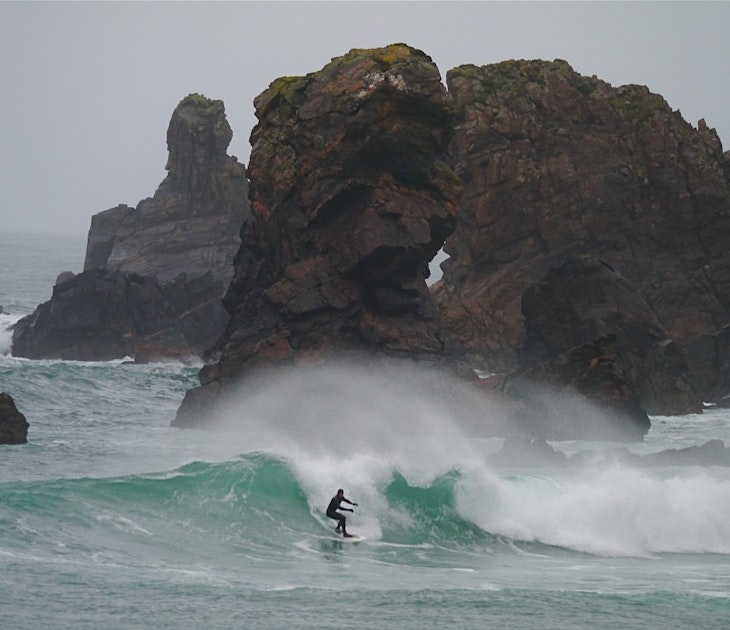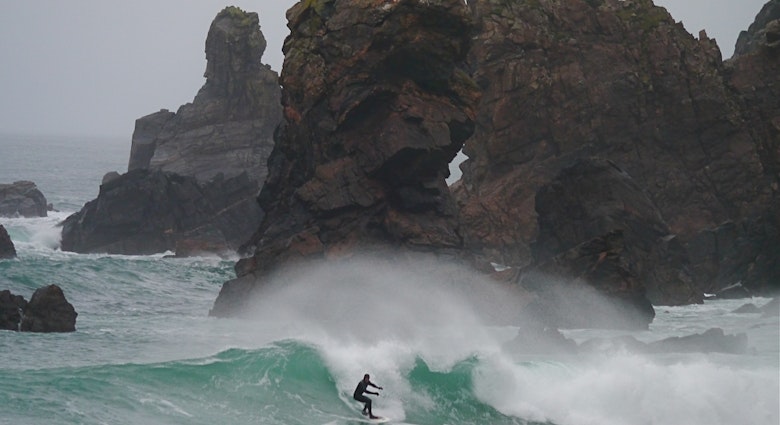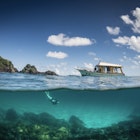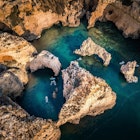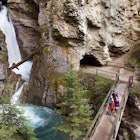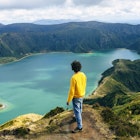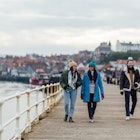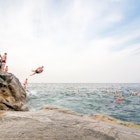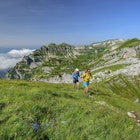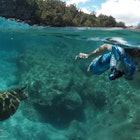What do you get if you combine cinematic landscapes, kaleidoscopic culture, head-spinning biodiversity and a constant rhythm of carefree joie de vivre? Welcome to Brazil!
The world's fifth-largest country commandeers the lion's share of South America, all the way from the Amazon Basin – the world's largest tropical rainforest – to the pampas of southernmost Rio Grande do Sul, delivering 7500kms of sun-toasted sands in between.
It is these postcard-perfect shores for which Brazil is arguably most famous, but this Latin giant boasts far more than beaches. Lush jungle? Check. Colonial villages? Check. Unparalleled wildlife? Check. Delectable restaurants and pulse-pumping nightlife? Check. Stunning waterfalls, canyons, mountains and dunescapes? Pronto, pronto, pronto and pronto!
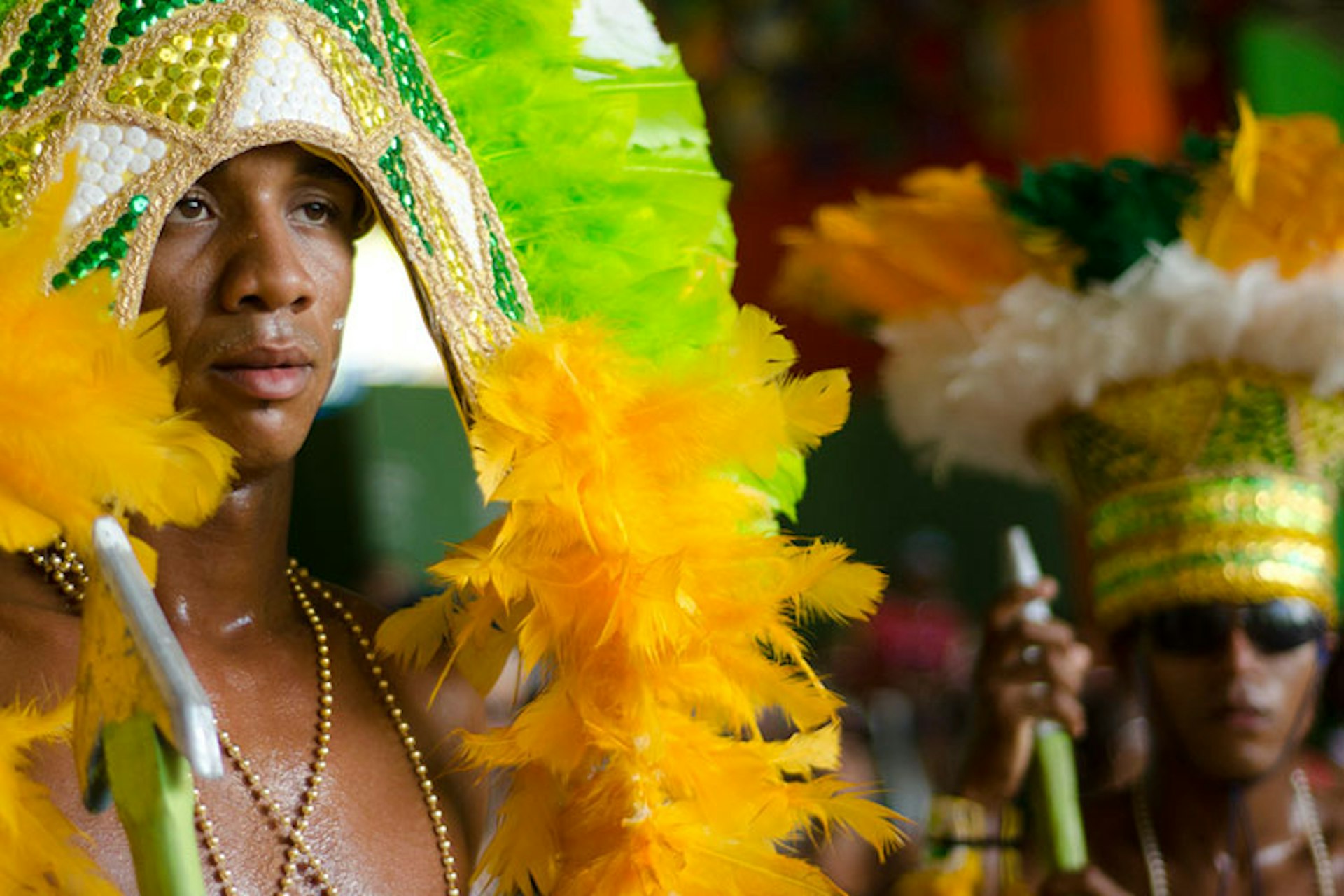
Brazil owes its language and much of its cultural potpourri to Portugal – both unique compared to its Spanish-settled South American neighbors – whose explorers arrived in the 1500s and settled what was then a land of largely indigenous inhabitants numbering between two and four million people. Waves of immigration from Africa, Europe and the Middle East have shaped and enriched the country throughout history. Today, with a population of nearly 200 million, Brazil is one of the world's most diverse nations.
A tropical wonderland
A visit to Brazil usually begins in Rio de Janeiro, one of the world's most vibrant urban landscapes, where dramatic, rainforest-crowned mountaintops surround a city nestled picturesquely between jungle and sea. The Amazon region – and its namesake river – are home to the planet's greatest collection of plants and animals, and this enigmatic landscape has long intrigued explorers, naturalists, novelists and travelers alike. Brazil's other hotspot for biodiversity, the Pantanal, is the world's largest wetland, where every moment throws up another photo opportunity full of colorful birds and wildlife.
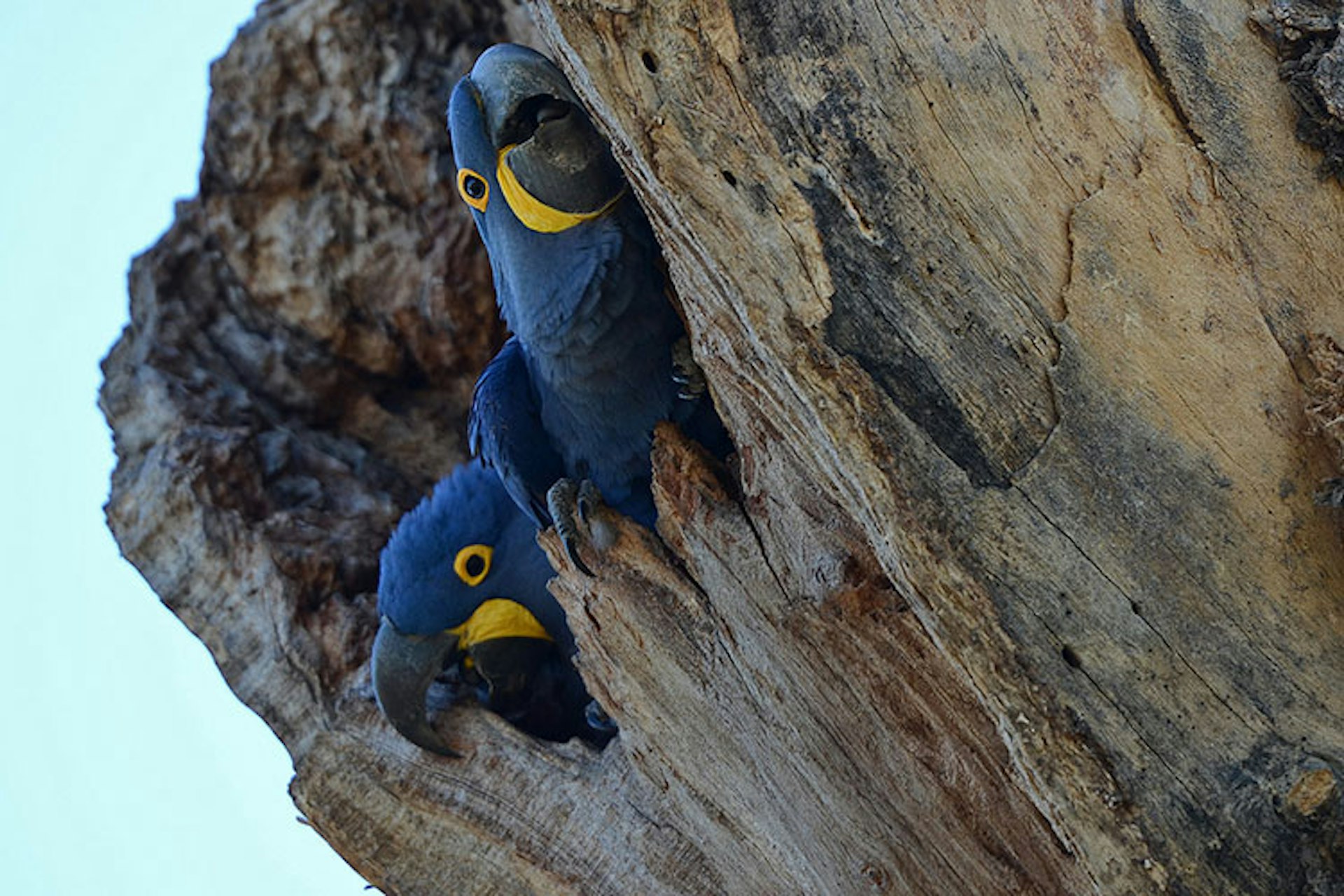
The roar of Iguaçu Falls will redefine your idea of the power of Mother Nature; this torrent thundering over the edges of cliffs is a spectacle without rival. And in a country with no shortage of world-class beaches, the archipelago of Fernando de Noronha serves up three of the best, and then adds the distinction of being Brazil's top spot for diving and surfing, and one of the best places on Earth to mingle with endangered sea turtles and Spinner dolphins.
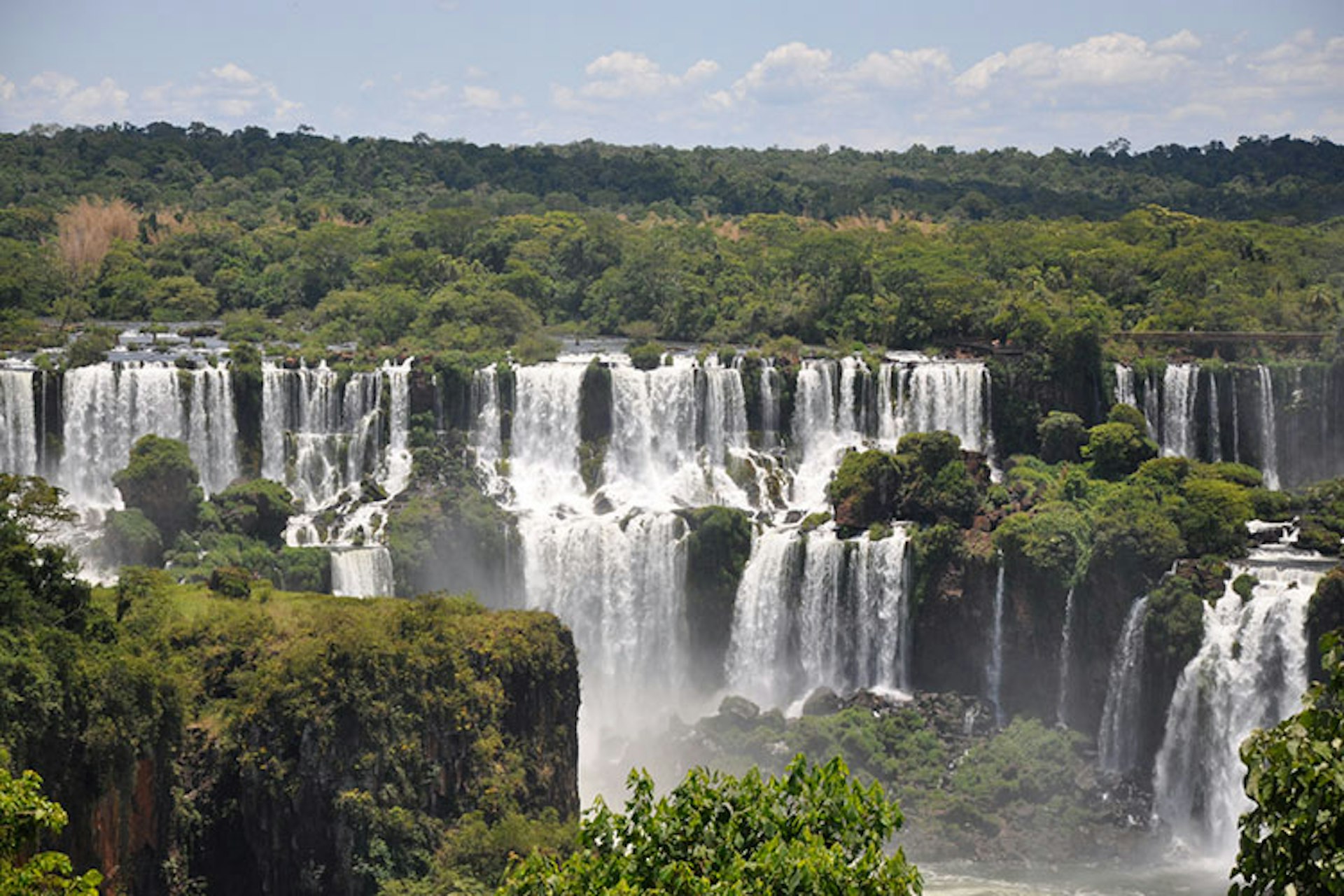
But wait, there's more! Pristinely preserved colonial villages (Ouro Prêto, Tiradentes, Paraty, Olinda), scenic national parks (Lençóis-Maranhenses (parquelencois.com.br), Chapada Diamantina, Chapada dos Veadeiros (whc.unesco.org/en/list/1035), Chapada dos Guimarães), idyllic tropical islands (Ilha Grande, Ilhabela, Ilha de Santa Catarina, Morro de São Paulo, Boipeba, Ilha do Mel) and an even longer list of diverse regional cuisine and culture, from the African-fueled state of Bahía to the heavily German and Italian-influenced states of Santa Catarina and Rio Grande do Sul, all unite in a seductive marriage that ticks off a traveler's wishlist.
Olympic fever (and fears)
Summer 2016 brings the Olympic Games to Rio de Janeiro, the first time the world's most important amateur athletic event has been held on South American soil. From August 5-21, 2016, the world's spotlight will once again focus on Brazil in much the same way it did for the 2014 FIFA World Cup. And much like the world's greatest football tournament, the lead-up to the event has not been without controversy and concern.
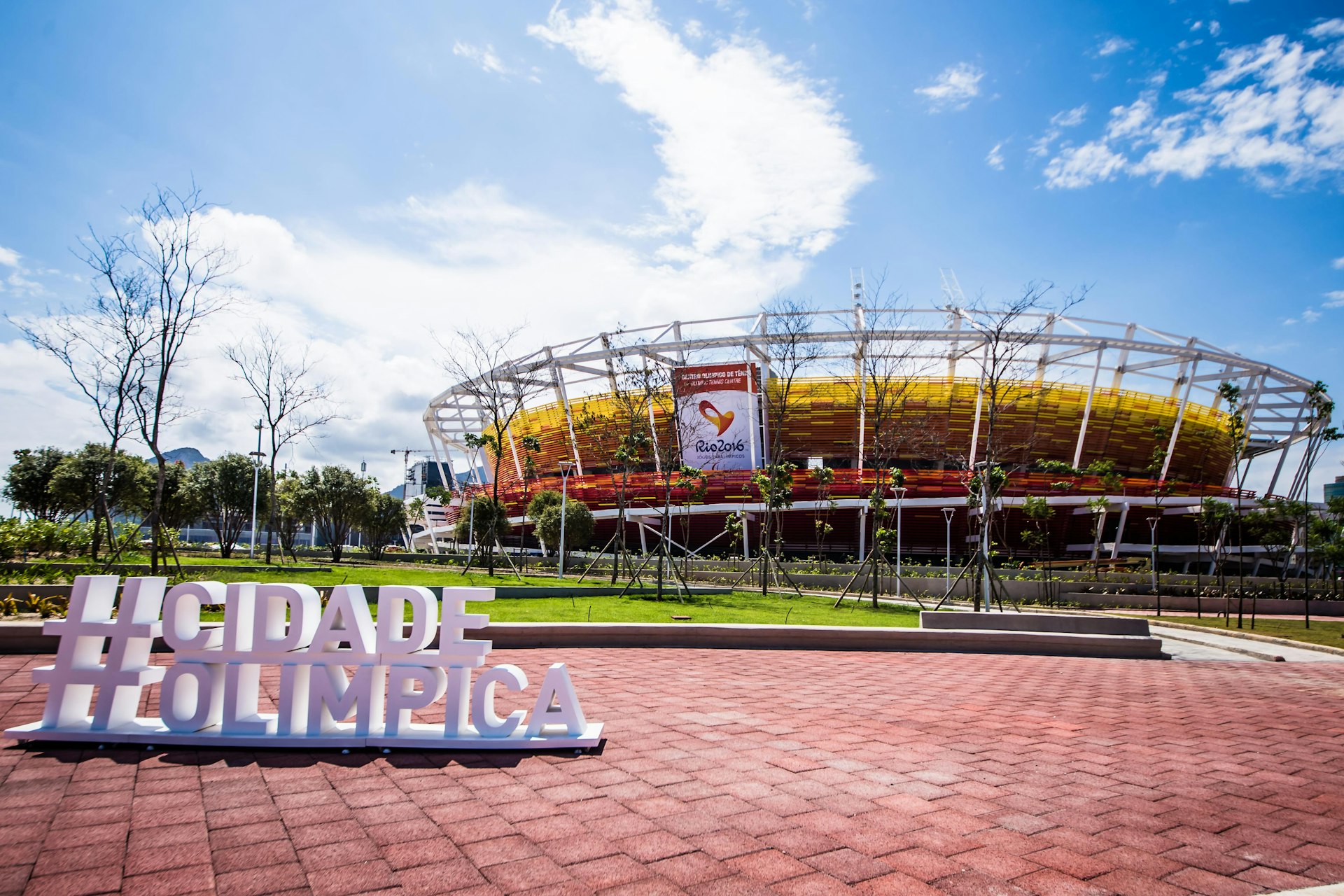
For starters, the Brazil of 2016 is a very different country than the Brazil of two years prior, so economic woes and rising inflation have plagued costs and budgets. Several of the 14 under-construction Olympic venues are behind schedule, as are most infrastructure projects associated with the event, such as the new metro line built to link the city with the Olympic Park in suburban Barra di Tijuca. Finances and construction woes aside, a 2015 Associated Press investigation revealed dangerously high levels of viruses and bacteria in all of Rio’s Olympic water venues, most notably Guanabara Bay, the host site for sailing and windsurfing events, and Lagoa Rodrigo de Freitas, which will host rowing and canoeing events. The lead-up to the 2014 FIFA World Cup spawned similar pre-event outcry, but despite deeply concerning construction, budget, crime and social unrest woes, Brazil pulled off an excellent party in the end – and by all accounts, from athletic and spectator perspectives, the tournament was a roaring success.
The bottom line? Brazil has its fair share of problems, but throwing a party isn't one of them. The friendliness and hospitality of the Brazilian people and a deep pride in proving the naysayers wrong when the world's eyes are focused on the country will always prevail in the end. It's safe to say you can expect a wonderful Olympic Games, made all the more cinematic against the backdrop of one of the world's most remarkably gorgeous cities, Rio de Janeiro.
Visa-Free Travel
If you're planning on traveling to Brazil in 2016, and are a citizen of the United States, Canada, Japan or Australia, you're in luck. Brazil has announced the waiving of visa requirements for those nationalities entering the country through September 18, 2016, for a stay of up to 90 days.
Costs
During the much ballyhooed Brazil boom of the early 2000s, there was no sugarcoating it: Brazil was expensive. By 2016, however, the Brazil boom had flip-flopped to the Brazil gloom. The overvalued real has come crashing back down to earth amid a fast and furious economic collapse spurred by government mismanagement, rampant corruption scandals, alarming inflation and a president, Dilma Rousseff, who may or may not make it through her second term (impeachment proceedings remain a dark and looming cloud over her head). But what does a Brazilian economy in tatters (and projected to decline further) mean in practical terms from a tourism perspective? Brazil is on sale! With the real spending the better part of recent times hovering around R$3.7-4 to US$1, that gourmet burger that cost nearly US$20 in 2011 now costs just US$7. Bom apetite!
Language
Brazil's official language is Portuguese. English is still under-spoken by most Brazilians, even by folks working in hospitality in major tourist destinations.
Transport
Brazil is home to extensive air and bus networks. The country's major domestic airlines include Latam (latam.com), the re-branded offering from the recent merger of Lan and Tam Airlines; Gol (voegol.com.br), Azul (voeazul.com.br) and Avianca (avianca.com). Most visitors arrive at Antônio Carlos Jobim International Airport (Galeão; aeroportogaleao.net/en) in Rio de Janeiro or Aeroporto Internacional de Guarulhos (GRU Airport; aeroportoguarulhos.net/en) in São Paulo, but there are also international arrivals in Brasília, Fortaleza, Natal, Recife, Salvador, Belo Horizonte and Porto Alegre, among others. Flights are expensive, though competition-spawned mega-sales are common and, if you are covering a lot of ground, a Brazil Airpass is your new best friend. Miami-based BR Online Travel (BROL; brol.com) specializes in passes, which are available only to foreign visitors.
Itapemirim (itapemirim.com.br) and Cometa (viacaocometa.com.br) are two of the biggest and best bus companies. For a national database of bus routes, try Busca Ônibus (buscaonibus.com.br) or ClickBus (clickbus.com.br), the latter accepting international credit cards and PayPal for payments. Fares begin around R$10 to R$12 per hour for the cheapest services and rise from there in price and comfort level.
Health
In addition to the usual traveler precautions, malaria is a concern in certain areas of the Amazon and northwest Brazil. Travelers should weigh the risks of an appropriate preventative (chloroquine is not effective here), and cover up as much as possible to prevent mosquito bites. Brazil has become the epicenter of mosquito-borne dengue fever in Latin America, especially in and around Rio and in Bahía. Pregnant women in particular should take extreme caution against mosquitoes while in Brazil as an alarming surge in cases of the Zika virus in 2015 was blamed for 20 times more cases of an incurable fetal deformity known as microcephaly than previous years.
Tap water is safe in most urban areas but doesn't win any taste competitions. Bottled water is preferred by most Brazilians.
Safety
Brazil receives a lot of bad press about its violence and high crime rate but the country is generally safe for tourists. That said, extra precaution should be taken in major urban areas, Rio de Janeiro, Recife and São Paulo in particular.
Besides all of the standard-issue traveler safety provisions, heed some added warnings: never take anything of value to the beach, use ATMs only inside banks or shopping malls, and do not walk along empty streets, deserted parks or urban beaches at night.
This article was first published in December 2013 and updated in January 2016.


